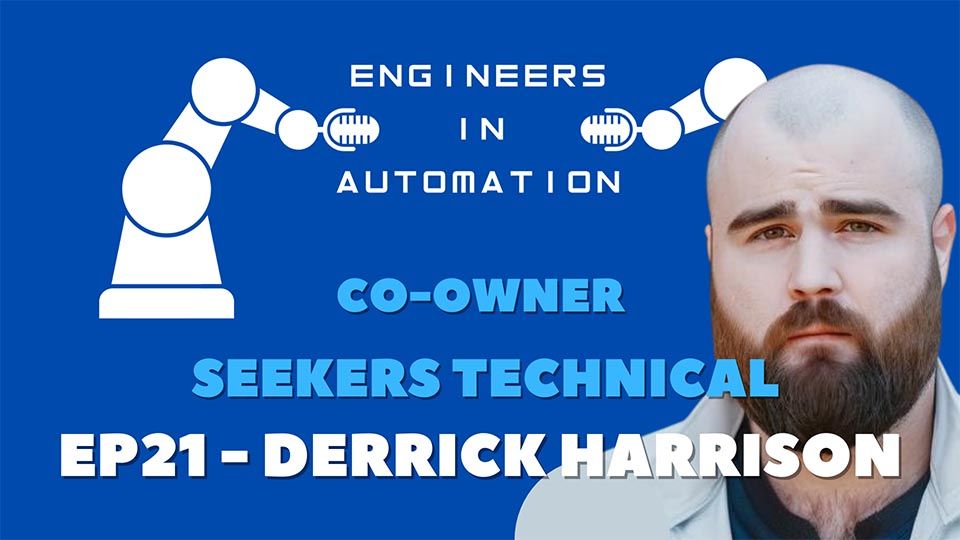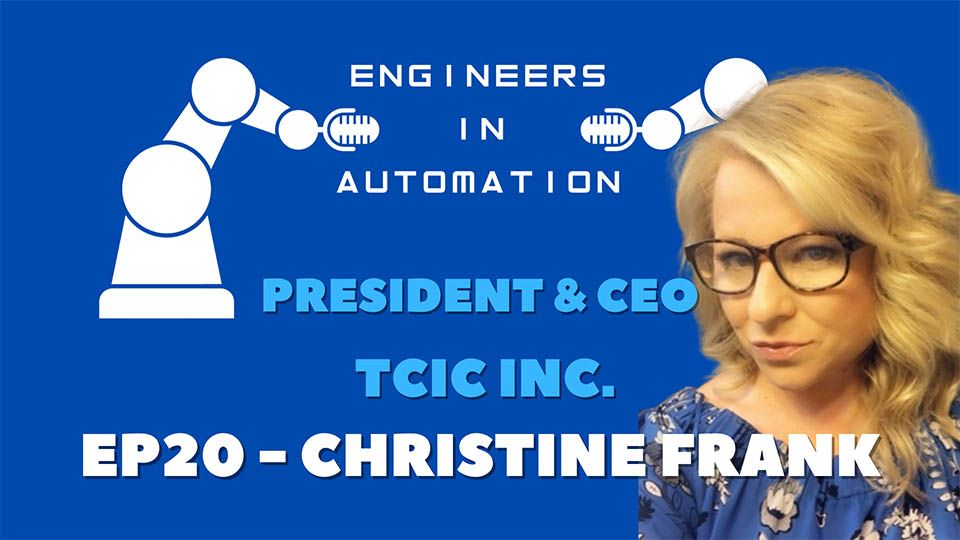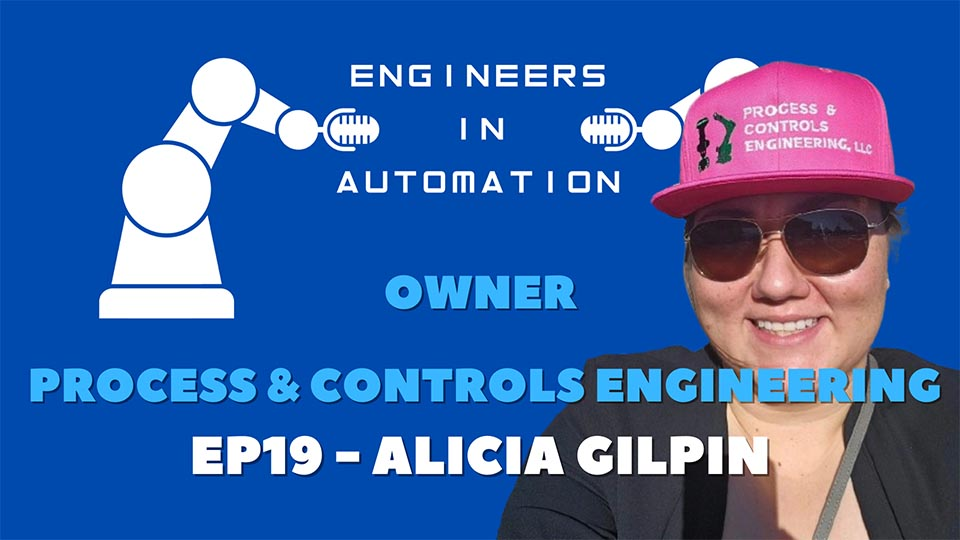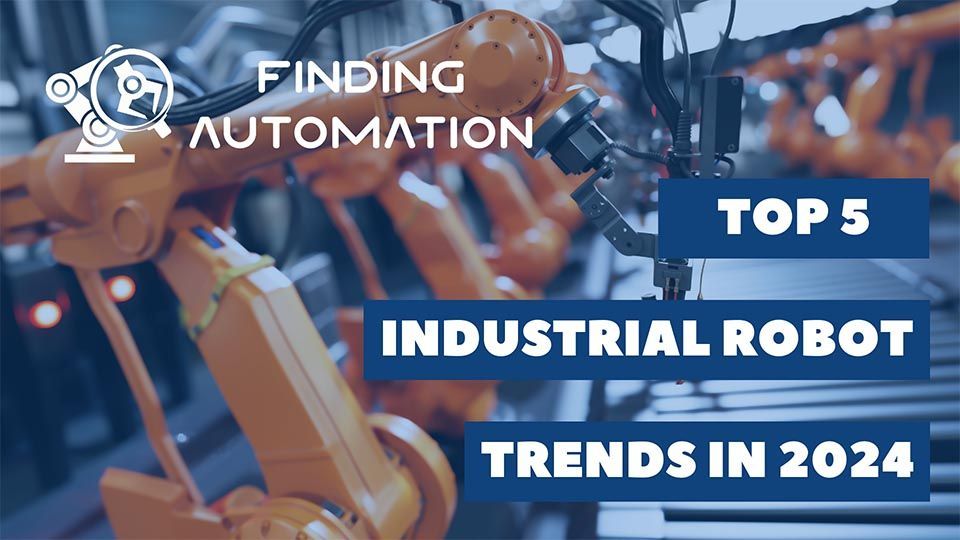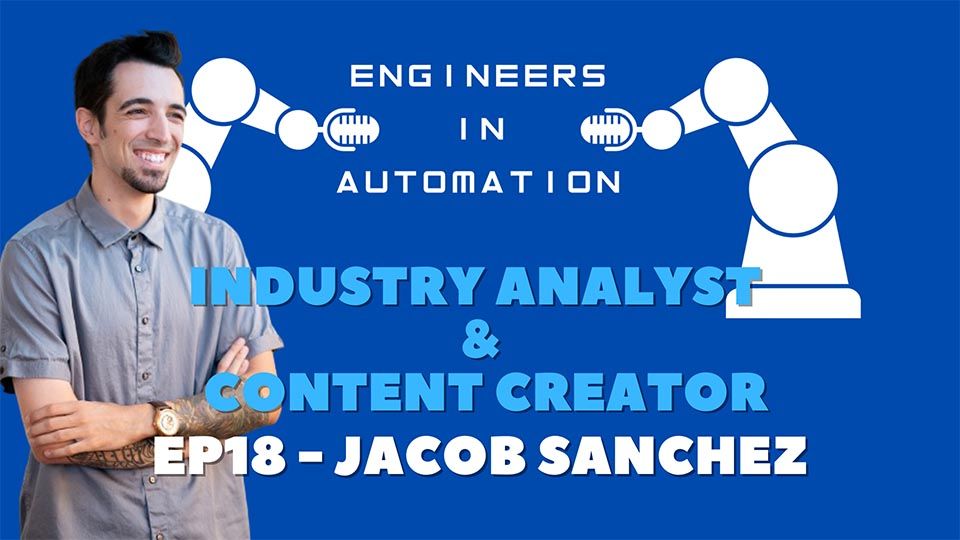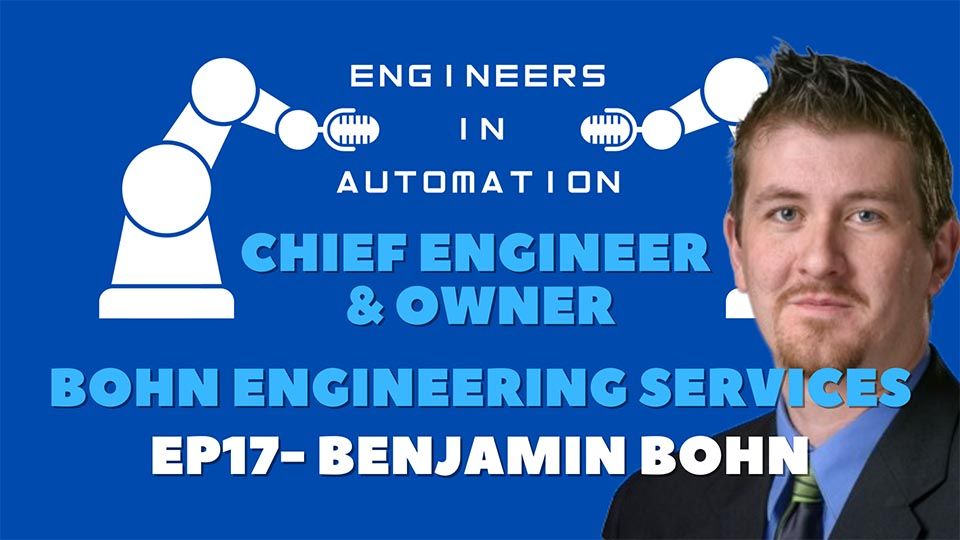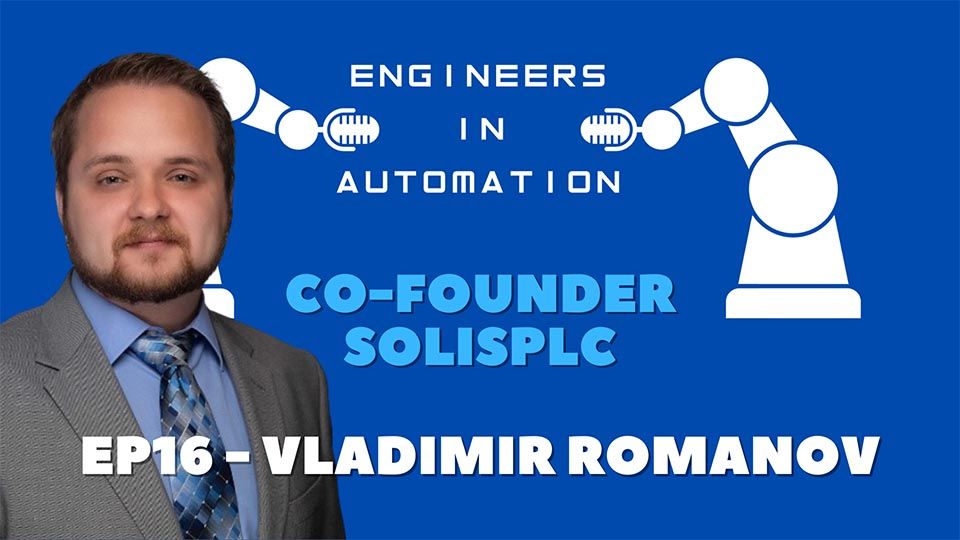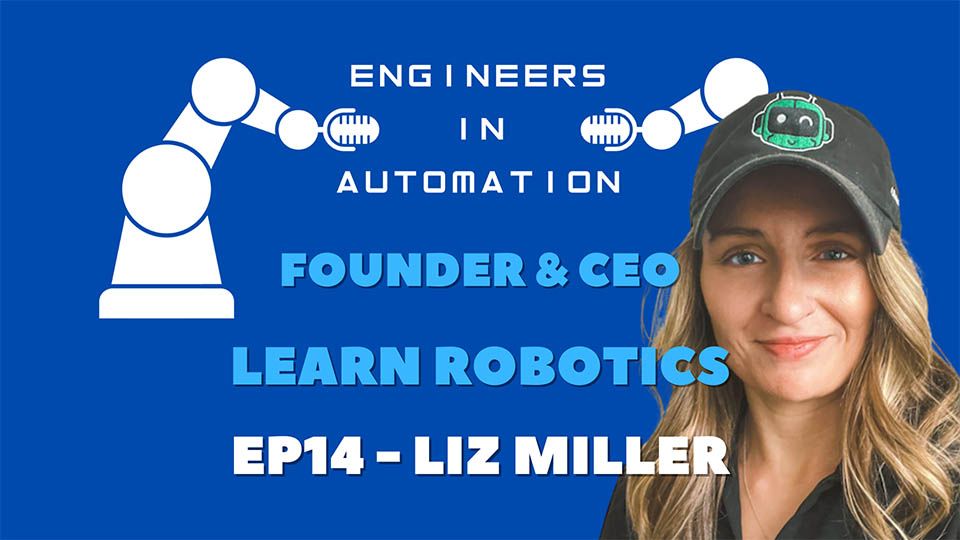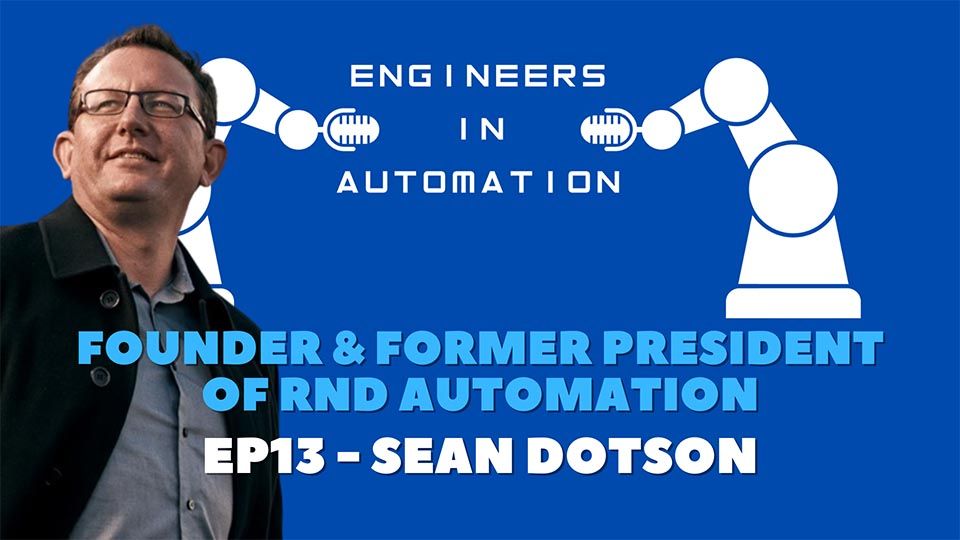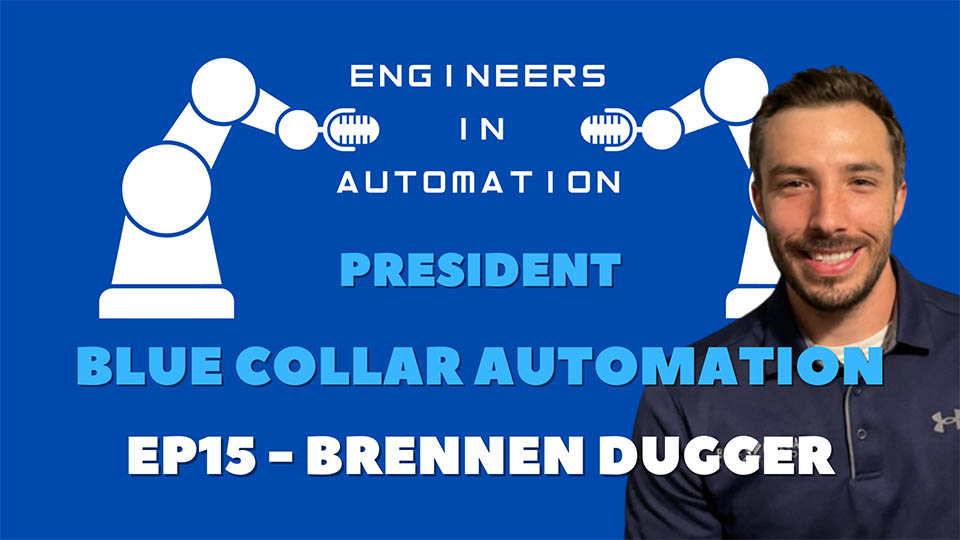Bret Young | Integrated Controls & Engineering
Engineers in Automation - Bret Young | Episode 9
In this episode, we talk with the owner of Integrated Controls and Engineering, Bret Young. We discuss having his wife as a co-owner and how they handle their personal and work relationships. We also discuss how he works side-by-side with his employees as a controls engineer and how he is growing his business by adding more W2 employees to his company. We also discussed business advice he would give someone considering starting a company.
WATCH THIS ENGINEERS IN AUTOMATION EPISODE:
Keegan Dillon – Host (KD): Hi, I’m Keegan, and I'm your host of Engineers in Automation. On today's episode, we're going to be talking with Bret Young. He's the co-owner and engineer at Integrated Controls & Engineering. We're going to talk a little bit about work-life balance, being a co-owner with his wife, and also how he's growing his business, some of his clients, and we're going to talk a little bit about his challenges as a business owner. Now, let's go talk automation!
KD: All right, and welcome to today's show. I'm here with Bret Young. He's the co-owner of Integrated Controls & Engineering. Bret, welcome to the show.
Bret Young – Guest (BY): Hi, Keegan. Thanks for having me.
Bret Young's Automation Background:
KD: Yeah, of course, let's just jump right into it here. How did you get your start in the automation industry?
BY: Well, so I got a degree in electronics engineering. During that course, most of it I was not interested in like when it came to the circuit level stuff, it’s really heavy math and heavy physics. I wasn't really into that stuff. However, there was one course that I found particularly interesting. And that was a controls, like a control circuits course very basic, you know, where you'd have a temperature sensor hooked up to a fan, and you would see the, you know, on a high temperature, you would turn on a fan, and run it until the temperature went down, that sort of thing. And that sparked an interest. And the rest is history, I did very well in that course, and was able to find a job in that field.
And you know, my first job was in it was in automotive. So doing controls in automotive, and found that very, very rewarding. So I did seven years in automotive. And then I transitioned into process controls. Seven years and process controls, and then it was time to start my own company. So here we are.
KD: Wow, good. Good for you. And you're still an engineer. Right? Your hands-on, you're getting dirty with everybody else. Right? Even though you are a co-owner.
BY: Yeah, definitely in the plants doing support? I that's at the core. That's what I am. That's who I am. That's what I enjoy.
Integrated Controls and Engineering Company:
KD: Yeah, good. Good for you. And congratulations on starting your business. Let's talk a little bit about that. How big is your business? How many employees do you have?
BY: So, it's five employees, my wife and I run it. So, I'm a co-owner, she's a co-owner. And then we have three employees. And so, we're based out of Kansas City. Everybody's an engineer, we don't have, we don't do titles or anything like that. It's everybody's kind of on an equal level. And we're all in plants. And that's, that's what we do day in day out is just controls. And it can be everything from new installs to retrofits to just onsite support. That's what it is.
KD: Okay, and then how do you identify people to hire into your company? How do you find those people?
BY: That's, that's actually a very good question. We haven't, we don't want to we have a process for that. We have some people that have a lot of experience. We have some people that are brand new out of college. And so, we take the skills that they have, what they're comfortable with, and we utilize those to the fullest extent.
Training Company Employees:
KD: Okay, yeah. And then have you taken them to any training classes like that at all or not? Is it just on-the-job training?
BY: It's on-the-job training. So, we do a lot of training here in the office, and then we start them off with a small workout in the field. And then as they, as they feel more confident, as they learn more skills, they use those skills in the field. So, in the field is where everybody learns. And that's what keeps me sharp, honestly, like if I get away from it, I can tell, you know, but the support calls the, you know, emergency support, where you have a line that's down and they call you and you know, a lot of times we come in after they've already been down for two hours, and the pressure is really on. But that's what makes you good. And that's what keeps you sharp, for sure.
Bret Young's Lessons Learned Owning A Business:
KD: And then, you know, being a business owner and having employees, you know, what are some lessons learned that you've had as a business owner that maybe you know, they didn't tell you before you started?
BY: Um, well, there's a lot of ups and downs. You can't really, it's hard to forecast where you're going to be any year you just don't know. And you know, with hiring my wife and I we've stressed a lot about that because it was you know, we had a workload enough for the two of us We were busy. And we thought, okay, do we bring somebody else on? Or do we wait? And, you know, we had a really good opportunity, a client came to us and said they had a contract that was a six-month support contract. And we knew that neither one of us could dedicate six months to it. And so that's when we pulled the trigger on employee number one. And we, we play that by ear. And that worked out and during the six months, we kept gaining business. So, we hired employee number two, and then number three came on board really quick. And so it's hard to forecast that though, for sure. Even today, I don't know where we're going to be in two or three years.
Business Goals For An Automation Company:
KD: So are you setting any company goals then? Or are you just kind of saying, Okay, here's what we've got for now. We're good for now. And then just as things come, you're just getting prepared and growing that way?
BY: Yeah, that's where we're at. So right now, we have quite a backlog of work. And so, we're, we're keeping our head above water. We are we're actively searching for employee numbers four, and five right now. So, we're bringing in resumes. And when I started doing interviews, because it doesn't seem to be slowing down, we keep waiting for that. You keep saying, “Okay, there's gonna be a downturn.” We haven't seen it yet. So we just keep moving.
KD: Not in automation.
BY: Not in automation, not yet.
Co-Ownership With A Spouse:
KD: And you know, as a business owner, that's good to hear. Right. I guess let's chat a little bit about your co-owner. What's that like? You said you're in business with your wife. Do you want to talk about that? It's, uh, you know, not everybody can say that.
BY: Yeah, yeah. So, we actually met on a job site. So we were, we were doing a startup together, and she worked for another company. And we worked really well together. And at the end of that project, you know, we started dating, and then really, I said, “Okay, are we going to do this full-time?” And so, it took a little while, she wasn't comfortable with it at first. And it took a while to get that much work for both of us. But once we did that, you know, there's been no turning back has been in it 100%. But definitely, it has challenges because you have the personal side, and then you have the work side.
KD: And how do you balance that, right? That’s a tough dynamic. Working with anybody you know, I'm sure you're doing long hours and 7 days a week, you know, working with anybody, it can be very tough, but then having, you know, working with the same person, then going home to that person that really puts you know, your relationship to the test will say.
BY: It does 100%. But we really, we rely on each other. So, there are days where I need her, for sure. And then there are days where she needs me. And so, we reciprocate that a lot.
KD: Yeah, well, well, congrats for making that work. That's really a unique situation, and very cool to see.
BY: Oh, yeah, it's very exciting. And it's nice to have that person to confide in to, like, you can talk about business a lot. And she has she understands, you know, I get her and she gets me and we can bounce ideas off each other because she's, she's been doing this for 10 years. So, it wasn't like she was a beginner when I met her. She really had it together when I met her. And so, it's great to bounce ideas off of somebody like that.
Automation Clients:
KD: Yeah. Good. Good. And then let's touch a little bit more here. On the business side, again, who are some of the clients that you guys are working with, with your company?
BY: So really, our strategy has been to stay local in the Kansas City area. You know, I traveled a lot during my career. So, for 14 years, I was on the road, most of that time, probably 80% of the time. And that took its toll. And I don't want to put that on any, any of our employees. So, our strategy has been to only work in the Kansas City area. And so far, that's paid off really well. So, in a world where everybody's going remote, we have taken the opposite approach. And we put people in plants.
And so that's why we're able to offer support, like real, real onsite support, you know, within two hours. So, if a plant is having problems, they can call us, and we'll have somebody there quickly. And Kansas City is not that, I mean, pretty much where we're at we can get to any place within 30 minutes. So, it's just, it's just getting the right person there. Everybody's got the right tools. And we have if it's too much for one person, we can bring somebody else in. And so that's been it's really been what's worked for us the last two years.
KD: Yeah, good. Good. Yeah. And, I think it is important that you know, hands-on, on-site, working with clients directly, I think that's a really good thing. And it builds a better relation working relationship. Right?
BY: Yeah.
Bret Young's Automation Likes:
KD: You know, so let's, let's touch base here a little bit on some of the likes that you like about this industry. What are some of your automation likes?
BY: Yeah, yeah, there's a lot, man, you know, I probably the best part about it for me with my personality type is, it's never the same day twice, it's you, I don't know what I'm going to do every day that I wake up, I don't know what my hours are going to be, I really have no idea. And so, all I know is I need to be prepared and be in the office by 7 to 8 am. Never later than 8 am. Usually I try to be in the office by 7 because my phone starts ringing at 7. And, you know, we do have remote access to plants too. So sometimes it's just remote. But I can count on, I'm gonna get at least one call a day. And I don't know what that's going to be. And that sometimes those calls, you know, sometimes a service calls, you get on site, and it's like, oh, you have a setting wrong. And it's, I'm in and out in 10 minutes. Other times, it can turn into a whole day, it can easily turn into 8 hours or sometimes 12 hours fighting one issue. So, you really just don't know. And it keeps you on your toes. And that's what I that's my favorite part.
KD: That sounds exciting. I mean, you know, compared to some jobs where you know, it's 9 to 5, you're doing the same thing every day for the years, just really working on your toes, we'll say, that's a pretty, pretty cool opportunity. Yeah, that this business and this industry can give you.
BY: And so that's just one side of it. That's the support side. And then when we do projects, that's a whole different type of fulfillment. Because with that, you know, especially like a new installation, you or retrofit, you go in and you see, you see a process or you learn about a new process. And they come to you and say, Okay, this is what it needs to do, how do we get there, and being able to lay that out, lay the foundation, explain how we're going to do it, design it, build control panels, you know, we don't always do the installation, sometimes we do some on-site, you know, fieldwork, like, as far as the wiring, but typically, that's, that's an electrical contractor that does that. So, you have an electrical contractor and a mechanical contractor that we work with, but then we get to start it up, which is the best part for sure.
And being able to see that from just a design on paper too, you know, this is big equipment, seeing it actually run. That's, that's a crazy thing. And I, you know, I've never had anything more fulfilling than that, that is a really cool thing to do. And then we just, we do it all do it over again, we support it after the fact. And then, you know, a lot of times within the same plant, we get another project. And then before you know what you're, you know, the whole plan. You know, everything? Yeah.
Bret Young's Automation Dislikes:
KD: Yeah. So, you know, we talked about some of the good things, what about on the opposite end, right? What are some struggles that you've seen in this industry, rather than, you know, through your business? And or just, you know, being on the job? What are some of the issues or mistakes, maybe that you've seen or done that, you know, you kind of use that as a lesson learned and move forward and grew from?
BY: Yeah, well, it's not really a lesson-learned thing. But it's, it's more of a, I guess, one of the things I wish we would have more opportunities to do is to design new plants. And a lot of times these big companies, they go to a larger engineering firm, which I completely understand. But so many times, I've seen really big engineering firms. They go in and they have this brand-new process, that could be so good. And the plant spends an obscene amount of money putting this in, and it just doesn't work. At the end of the day. It's not what they wanted. Or I guess it's not, it doesn't fit the expectation that they had. And by that time, all the capital has been spent. And sometimes we get called in after the fact. And we try to make it better. But there's not a lot we can do at that point, because so much of the groundwork has been laid. And if that's not done, right, that's a hard thing that puts us in a very, it's frustrating as a business owner, it's I'm like, man, you know, if we had that we could have done a lot with this. But that's, that's the only thing I get frustrated that.
KD: Yeah. And I could, I could see that too. You know, where you have all this technology that you could use and if it's not used properly. It's like you said it's almost like a waste of money. And it's collecting dust.
BY: Yeah, for sure.
Work-Life Balance As A Business Owner:
KD: What about work-life balance? So, you know, this has got to be hard. If you're probably putting in a lot of hours working some weekends here and there. How does that work? And how do you make it work with your co-owner/wife? How do you guys break away from the business when you get the opportunity to?
BY: Yeah, so. So, we have children? Also, I have three children. And that's not that's a whole other level of difficulty too. Because, you know, owner some days, but then dad some days too. And I, we make it work. We make it work. But you can't be all business all the time. You have to take time. You have to take time out for family, for sure. But you have to make that a priority.
KD: Yeah. And do you set time away throughout the weekday? Or do you say, you know, on this day, I'm going to break away at this time, or every other weekend type of thing, or what's your strategy there?
BY: Yep. Yeah, definitely. Throughout the week, there are certain days where I have cut-offs, where hey, like, I have to leave because, you know, I gotta take kids to sports or, you know, the extra curriculars you know, but definitely, there's, there's hard times where I'm like, nope, gotta go. And then, you know, some weekends, but also, you know, there's, I have certain, like, Sundays, I get so much done on a Sunday, I can come in and like, I come in really early, get to the office at like, seven, I can knock out, you know, so much in four hours, because it's uninterrupted. So, I like taking time like that, too.
Advice For Starting An Automation Company:
KD: Yeah. And that's good. Kind of break away on your own and work on your business and yourself as well. That's probably another benefit to just kind of reset the week. What kind of advice would you give somebody who's thinking about, you know, starting their own business, similar to what you're doing? Any advice that you'd give them?
BY: Um, I think, I think it takes a different type of mindset to do this. But I think if you're ready, you'll know when you're ready. And that's what somebody told me once I thought, yeah, that actually makes a lot of sense. And for me, I was ready. I just couldn't. I was stuck in this thing of, I needed another challenge. I needed something more than what I was getting. And this has definitely been that challenge. And so there's certain people, they hit that, and they're not being challenged enough. And if you run into that, you'll know it. And that's when it's time. And I think I think also, you just have to make that jump. And that's a hard thing. It's a hard thing to do. I think a lot of people try to do one foot in each world, they try to, you know, still stay getting that that w two paycheck, that security, but they also want to start their own company and that doesn't work. You have to, you have to jump, and you'll be okay.
KD: And you'll learn a lot like you mentioned, right? Yeah, a lot. It'll be hard. But at the end, it'll probably be worth it.
BY: Yeah. But I think you kind of have to put yourself in that position. You have to take that security away from you. Yeah. And once you're there, and you're you don't have anybody, you don't have any help. And, but that's when you're gonna find out what you're made of. And you'll make, yeah, you'll make it you don't have a choice.
Connect With Bret Young:
KD: Right. That's a great point. And then I want to touch on as well, too, you know, you kind of amassed a pretty big following here on LinkedIn. You know, how can people get in touch with you? You know, what's the best way to reach out via website? LinkedIn? How can you know people reach you?
BY: Yeah, LinkedIn is probably the best way. My email addresses on there. And anybody can send me a message on LinkedIn or an email. Yeah, I'm usually pretty good about responding to that.
KD: Yeah. Good. And then, and then any last words before we wrap up here?
BY: No, I think I think we touched on all the big things. I can't think of anything else at this point.
KD: Okay, good. Well, we'll have a description at the bottom and leave all your information to your website and where people can find you on LinkedIn as well. So, I hope you guys enjoyed today's episode, give us a like, comment, share, and don't forget to subscribe. And we hope that you join us next time here on Engineers in Automation. Thanks.
If you enjoyed that podcast episode, get more information below!
CONTACT OUR GUEST:
Connect with Bret Young on LinkedIn.
Learn more about Integrated Controls & Engineering.
SPECIAL THANKS TO OUR SPONSOR:
This episode was sponsored by JOINER Services. A platform where self-employed engineering contractors can showcase their own talents, and businesses have an opportunity to hire their services. If you want to learn more about JOINER Services and its engineering service platform for contract engineers, follow them on social media or sign-up on their website.
